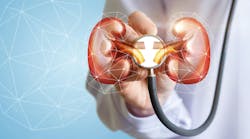Seemingly healthy people whose blood contained antibodies associated with a condition called antiphospholipid syndrome (APS) were significantly more likely to experience a cardiovascular event such as a heart attack or stroke than those without, a study led by UT Southwestern Medical Center scientists shows. The findings, published in JAMA Network Open, suggest a new way to predict cardiovascular disease risk.
Researchers turned to the Dallas Heart Study, which was started in 2000 and produces data on cardiovascular disease risk from thousands of participants.
The research team tested blood that had been collected from study participants between 2007 and 2009 and looked for the presence and amounts of eight different antiphospholipid antibodies. They analyzed these data along with questionnaire responses gathered during a follow-up period that averaged eight years to see which participants experienced a heart attack, stroke, coronary bypass surgery, or death from cardiovascular disease.
The researchers detected antiphospholipid antibodies in about 14.5% of the 2,427 study participants. About a third of those had antibody levels that were considered moderate or high. Over the follow-up period, 125 individuals experienced cardiovascular events. After adjusting for risk factors such as age, sex, race, body mass index, smoking history, cholesterol levels, and diabetes, the researchers found that the presence of two particular antiphospholipid antibodies – aCL IgA and ab2GPI IgA – was associated with a future cardiovascular event. In participants with relatively higher levels of these two antibodies, this connection was even stronger.
Lab tests suggested that these antibodies could impair the ability of “good” cholesterol to absorb lipids in the blood and ferry them to the liver for disposal. They may also encourage the formation of atherosclerotic plaques in the heart, brain, and elsewhere.





